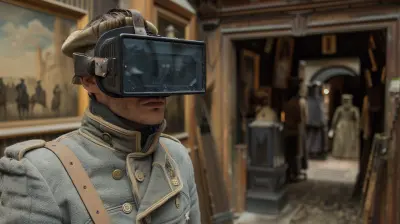Personalized Robots: Tailoring Machines to Your Needs
14 October 2025
Imagine waking up to a robot that knows your morning routine better than your partner does. It brews your coffee just the way you like it, checks the weather, and gives your dog a treat before you're even out of bed. Sounds like science fiction, right? Well, not anymore.
Welcome to the era of personalized robots — not just mechanical helpers, but smart companions designed to suit your lifestyle, habits, and even personality. These aren't your average, one-size-fits-all machines. They're your digital sidekicks, customized to fit like a glove. Let’s dig into this futuristic (and now very real) tech trend and see how it's reshaping the way we live, work, and even care for ourselves.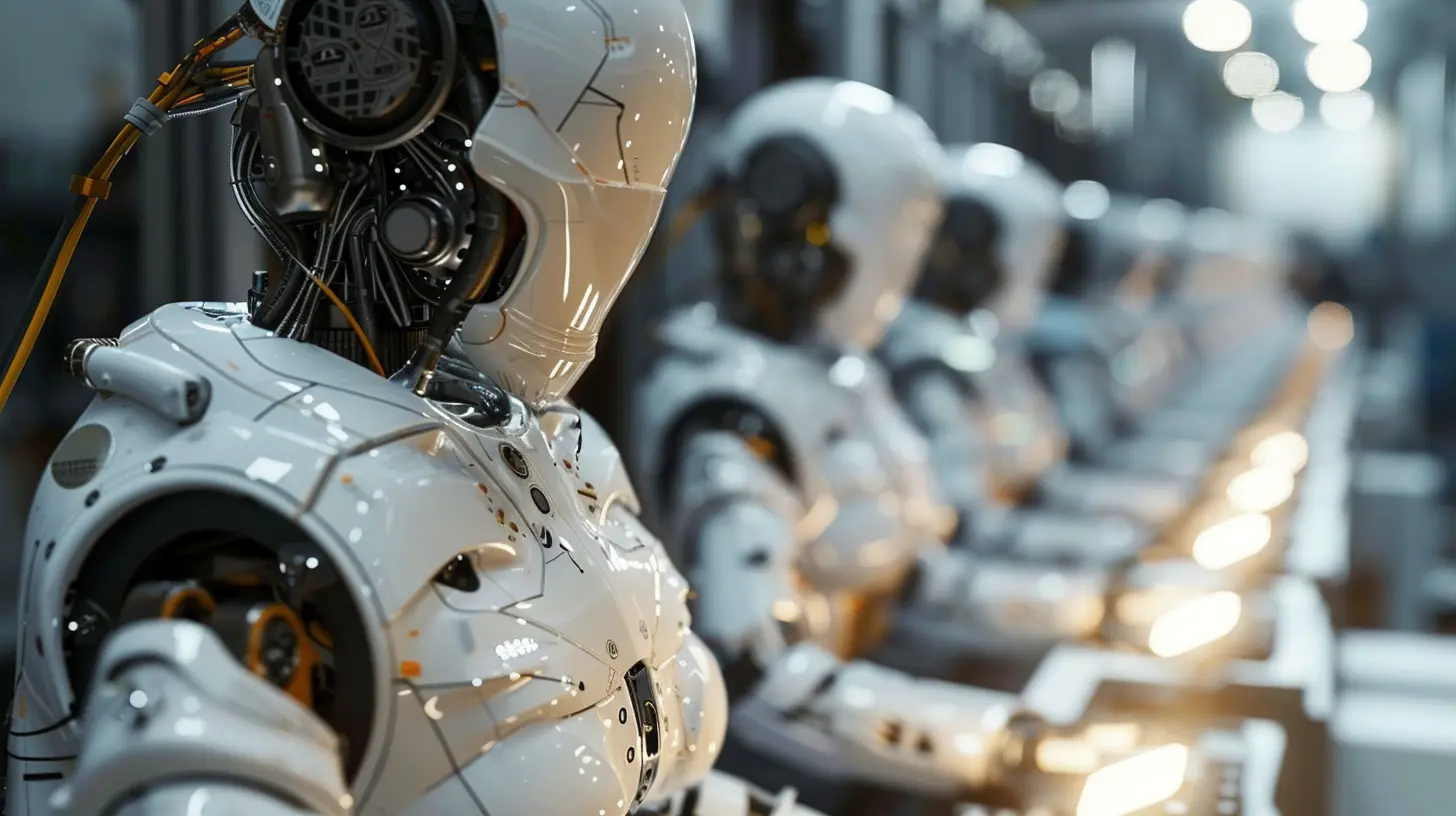
What Are Personalized Robots, Really?
Personalized robots are intelligent machines programmed to adapt to you — not the other way around. Think of them as the robotic equivalent of a custom-tailored suit. These machines can remember your preferences, recognize your voice, follow your routines, and even learn your quirks over time.Whether it’s a robot vacuum mapping your home’s layout or a robotic assistant managing your calendar, these machines are becoming more than tools — they’re partners. What makes them “personalized” is their ability to gather data through sensors, AI algorithms, and interaction history, and then use that information to better serve you specifically.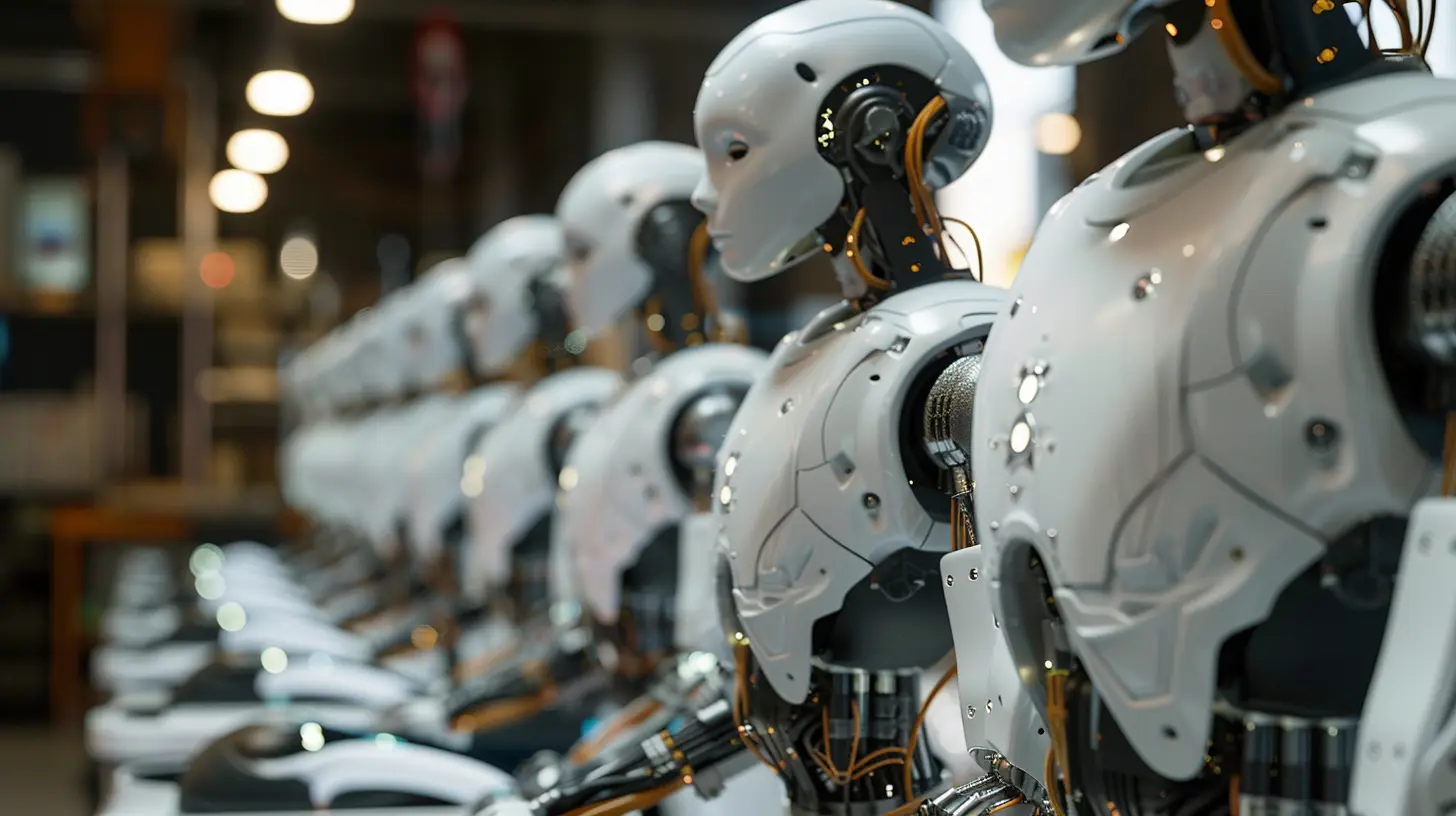
Why Robots Are Going Personal
So why this big leap from generic to personalized? Simple — nobody wants to spend time teaching a robot how to understand them from scratch every day. We demand more than functionality; we crave convenience, empathy, and ease.Here’s the kicker: personalization is no longer a luxury. It’s expected. AI and machine learning have grown so sophisticated that not customizing machines now seems outdated. Your smartphone knows your face, your voice, your browsing patterns—why shouldn’t your robot?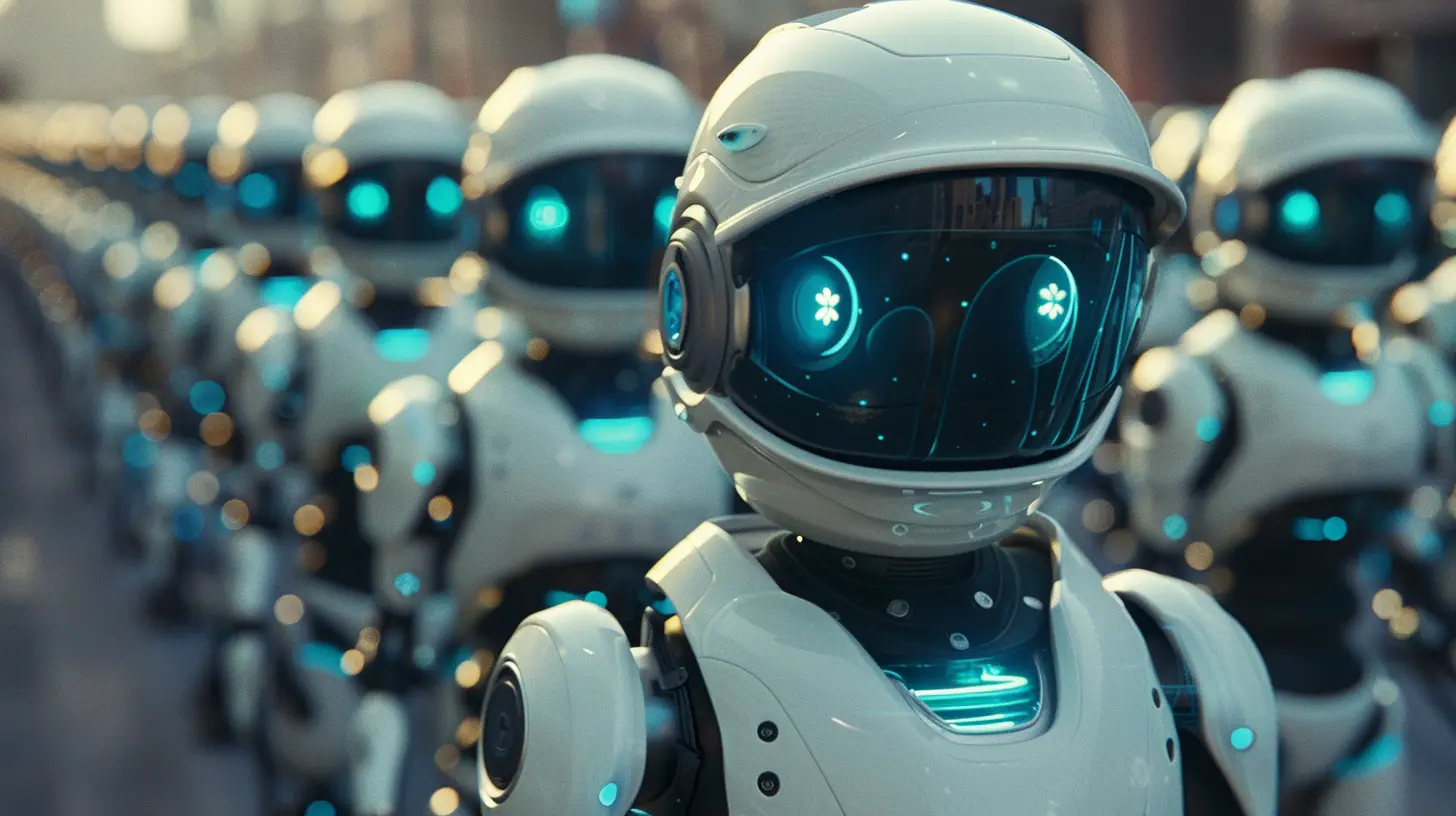
The Tech Behind Personalization
Alright, let’s get nerdy for a minute—but not too nerdy, I promise.🧠 Artificial Intelligence (AI)
At the heart of personalization is AI. This is the brain of the operation. AI allows robots to think, learn, and make decisions. Over time, they get better at predicting what you want or need. It’s like when Netflix suggests a show you didn’t know you’d like—and it's spot on. That’s AI learning your preferences.📡 Sensors and Data Gathering
Robots are equipped with sensors that act like their eyes, ears, and even skin! These sensors pick up data about the environment and about you—like your movements, voice tone, and usage habits. The robot then uses this treasure trove of information to adapt its behavior.☁️ Cloud Computing
All that data? It doesn’t just sit there. Robots use cloud computing to process and store it. This allows updates and learning from a much larger database, making your robot smarter without ever needing a trip to the workshop.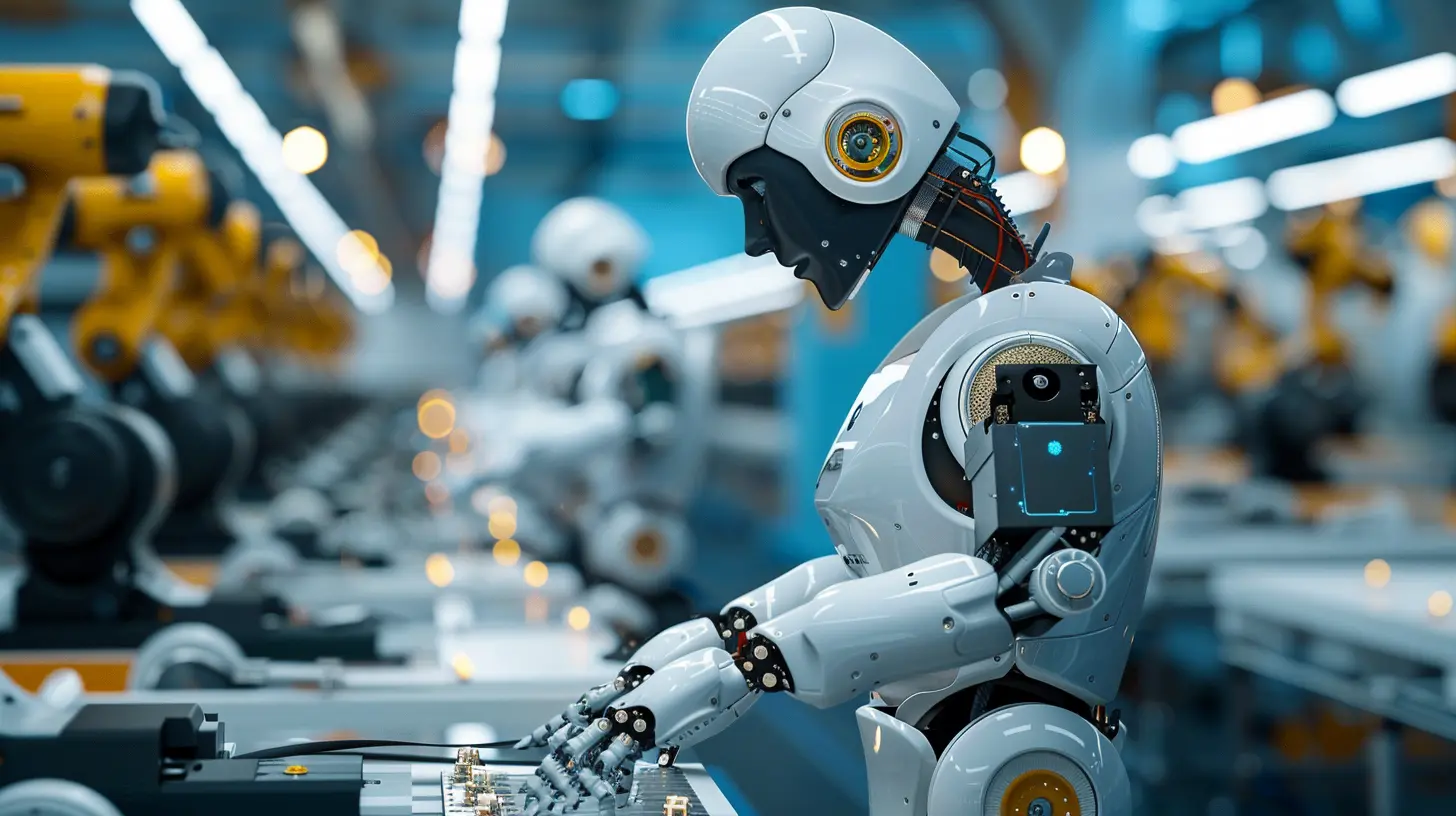
Real-Life Applications of Personalized Robots
Let’s bring this to life. Where are personalized robots being used right now?👨👩👧👦 In Your Home
Home is where smart robots shine. From robotic vacuum cleaners that learn your furniture layout to smart assistants like Alexa or Google Assistant that remember your favorite playlists, personalization is making home life smoother.Some home robots can even monitor your health, check your posture, or remind you to hydrate. It's like having a personal trainer, but without the high fives and sweat.
🏥 In Healthcare
In hospitals and eldercare, personalized robots are game changers. They can monitor vital signs, remind patients to take medicine, and even provide companionship. For seniors, robots like ElliQ or PARO aren't just assistants — they're lifelines that bring daily interaction and a sense of presence.🤖 In the Workplace
Robots are making office life less mundane too. Personalized bots can manage schedules, transcribe meetings, and even filter emails based on your reading patterns. Imagine having a digital assistant that gets your work style better than your boss does!🧠 In Education
Learning with a personalized tutor? Yes, please. AI-driven educational robots can assess a student’s learning patterns and adjust their teaching style accordingly. Struggling with algebra? Your robot will know and slow things down. A natural at geometry? It’ll step things up a notch.The Perks of Going Personal (Seriously, Who Doesn’t Want That?)
If you're still wondering why personalization matters, let’s put it this way — it's like the difference between a mass-produced burger and one made exactly to your liking. You’ll always choose the latter. Same with robots.More Efficiency
Personalized robots learn to work the way you do. No more trial and error or wasting time on irrelevant commands.Better Bonding
Having a robot that understands you forms a unique human-machine bond. This emotional connection, believe it or not, increases usability and satisfaction.Empowering Accessibility
For people with disabilities or special needs, personalization turns robots into powerful allies. They can adjust to speech difficulties, physical limitations, or cognitive impairments, making life more manageable.The Coolest Personalized Robots Out There
Let’s look at a few robots blazing the trail in personalization:- Temi: A personal assistant robot that learns user preferences, controls smart home devices, and follows you around with precision.
- Miko 3: An AI-powered kid-friendly robot that adapts to your child’s interests, helps with education, and even tells jokes to brighten moods.
- Jibo: Once dubbed "the first social robot," Jibo can pick up on emotional cues, learn your habits, and interact like a true companion.
These aren't your typical tin cans with wheels; these are intelligent, adaptive machines designed to engage with you on a daily basis.
Challenges on the Road to Personalization
Of course, it’s not all rainbows and robot hugs. There are a few bumps on the path.Privacy Concerns
You can't talk about personalized tech without mentioning data privacy. Since these robots gather a lot of personal info, security is a huge topic. Who owns the data? How is it being used? These are still open questions needing more transparent answers.Cost & Accessibility
Custom tech doesn’t always come cheap. While prices are dropping, truly personalized robots are still out of reach for many households. But like all tech, costs will go down over time. Remember when smartphones were once luxury items?Complexity & Over Customization
Here’s the ironic twist — sometimes too much personalization can make things complicated. Have you ever tried programming something so specifically that it ends up being less efficient? Yeah, that happens with robots too. The key is balance.The Future is Personal (and Robotic)
So, what does the future hold for personalized robots? In a word: everything.Imagine walking into your home and being greeted by a robot that knows you had a rough day (based on your tone of voice or calendar events). It dims the lights, plays your comfort playlist, and starts prepping your favorite meal. We’re getting closer to that world every day.
In the next five to ten years, we’ll likely see robots that don’t just respond—they anticipate. Their AI will evolve to understand context, emotional undertones, and even relationships. Your robot might one day remind you to call your mom, help your kids with homework, and make sure the dog’s been walked — all without missing a beat.
Should You Get One?
If you’re tech-curious or simply like the idea of a robot that “gets you,” now might be the perfect time to start exploring. Even simple personalized features like smart voice assistants or customized robo-vacuums can make life noticeably easier.Start small. Get a feel for the tech. Because the truth is, robots aren’t coming—they’re already here. And the more personal they get, the more powerful they become in shaping our daily experiences.
Final Thoughts
The age of personalized robots is just beginning, and honestly, it’s pretty exciting. We’re shifting from machines that serve everyone the same way to intelligent entities that adapt, evolve, and grow with us.In a world where we’re constantly striving for convenience, comfort, and connection, personalized robots could be the very companions we've been looking for — not to replace humans, but to support us in becoming the best versions of ourselves.
So go ahead — imagine your future sidekick. Chances are, it's already being built.
all images in this post were generated using AI tools
Category:
RoboticsAuthor:

Michael Robinson
Discussion
rate this article
1 comments
Gavin Reynolds
This article beautifully captures the essence of personalized robotics! It’s fascinating to see how these machines can be tailored to individual needs, enhancing our daily lives. Excited to witness the future of technology becoming more personal and accessible!
October 15, 2025 at 10:28 AM

Michael Robinson
Thank you! I'm glad you enjoyed the article and share the excitement about the future of personalized robotics!


